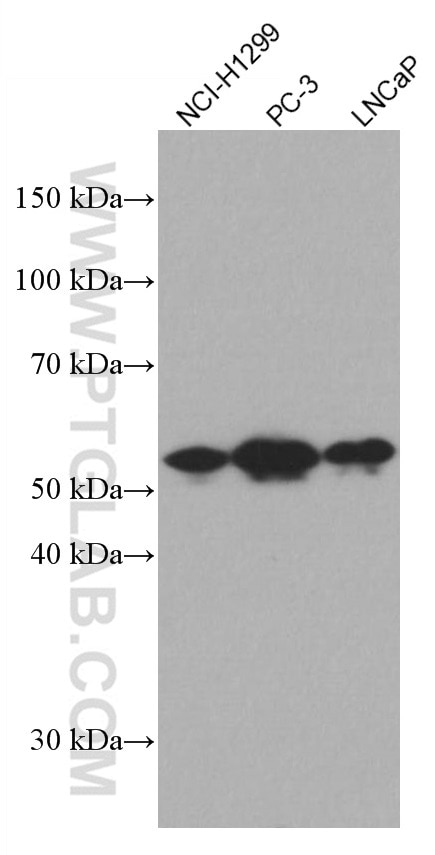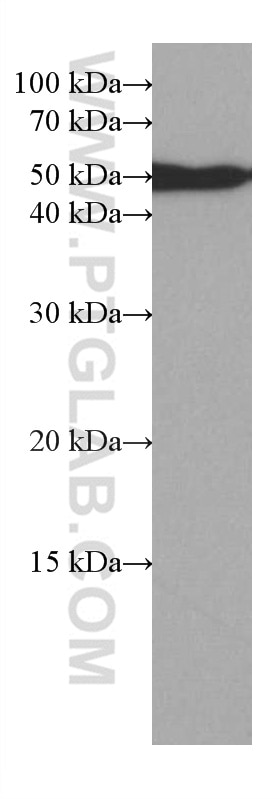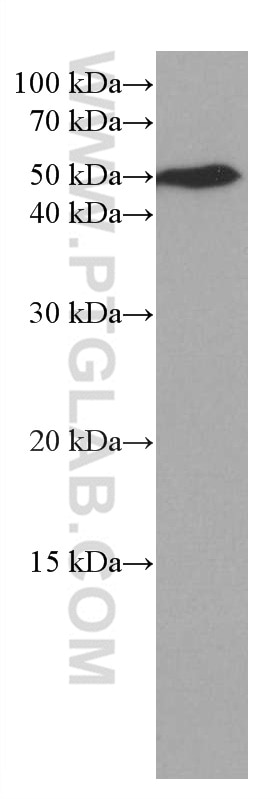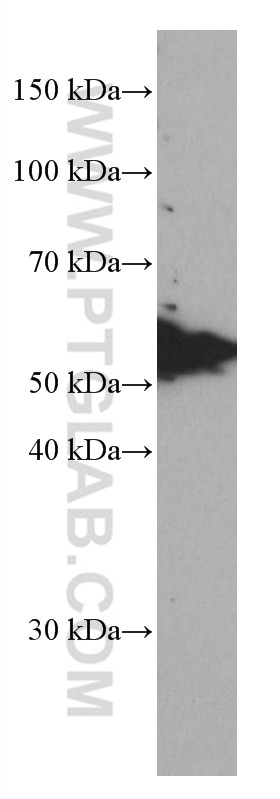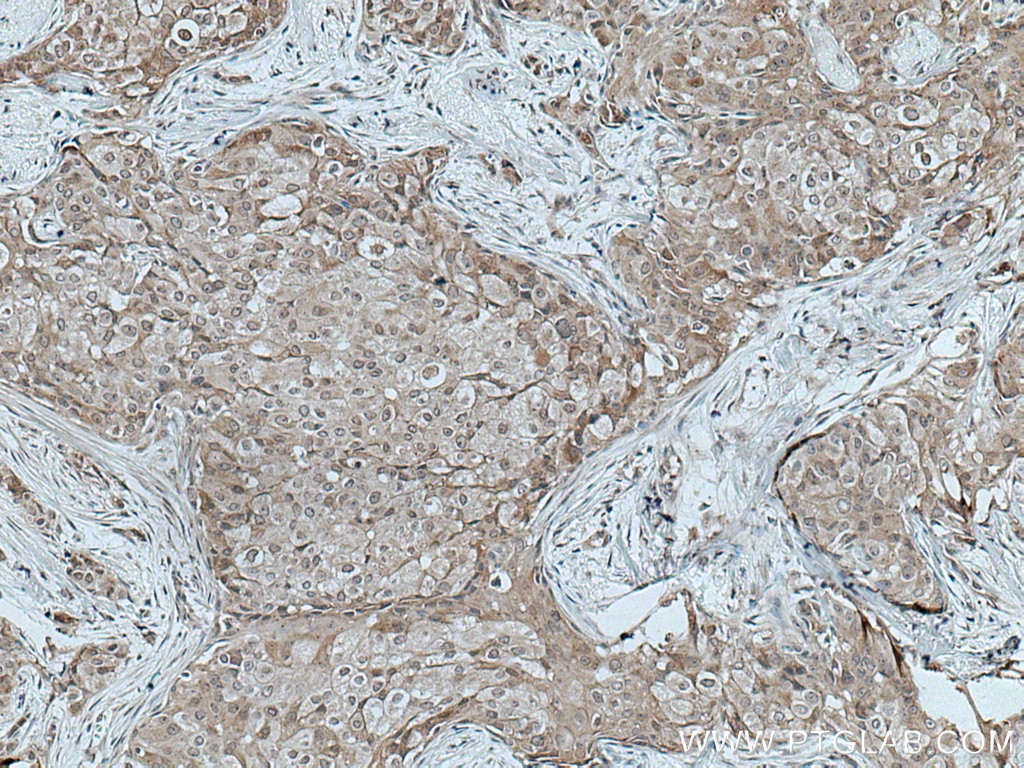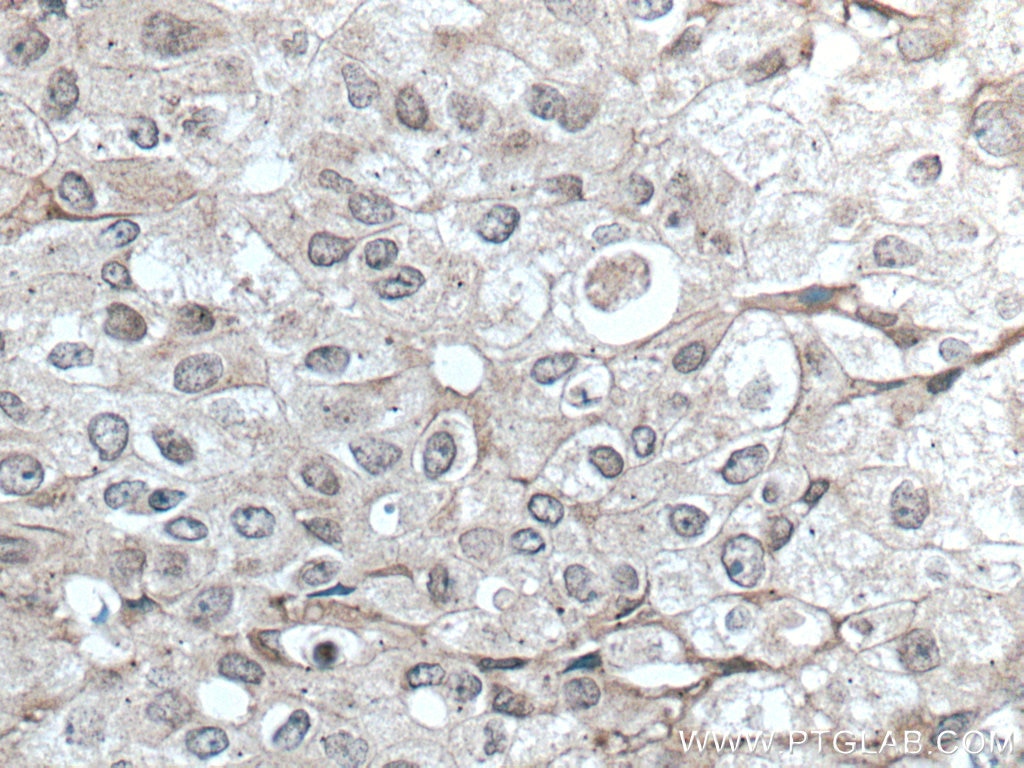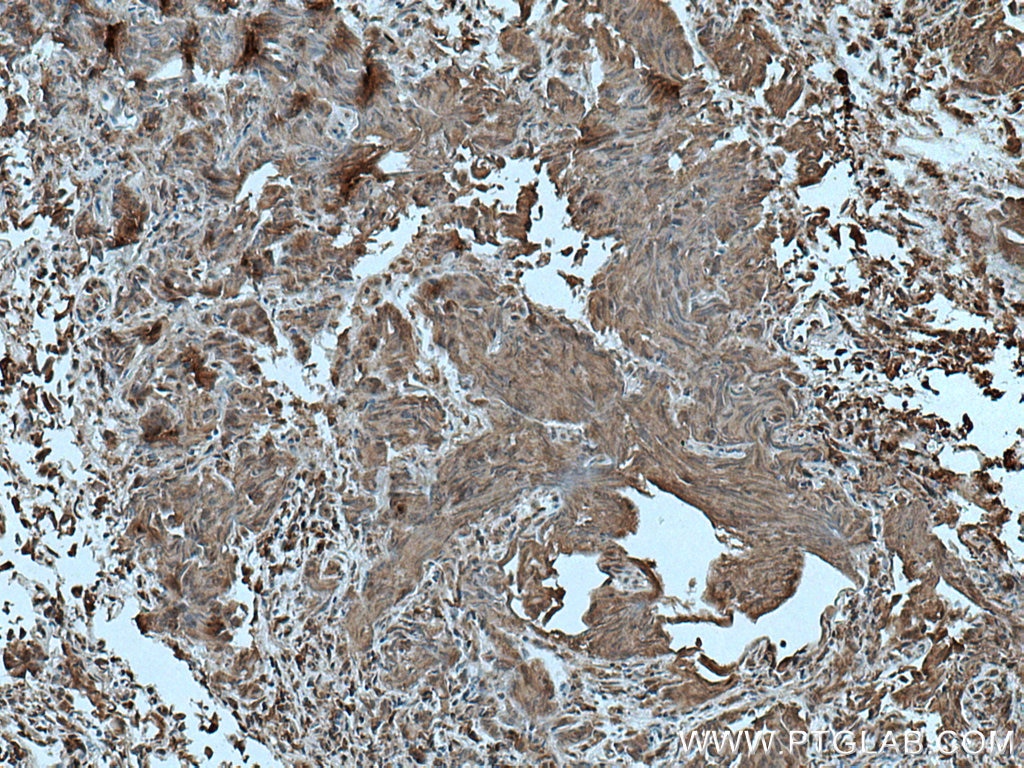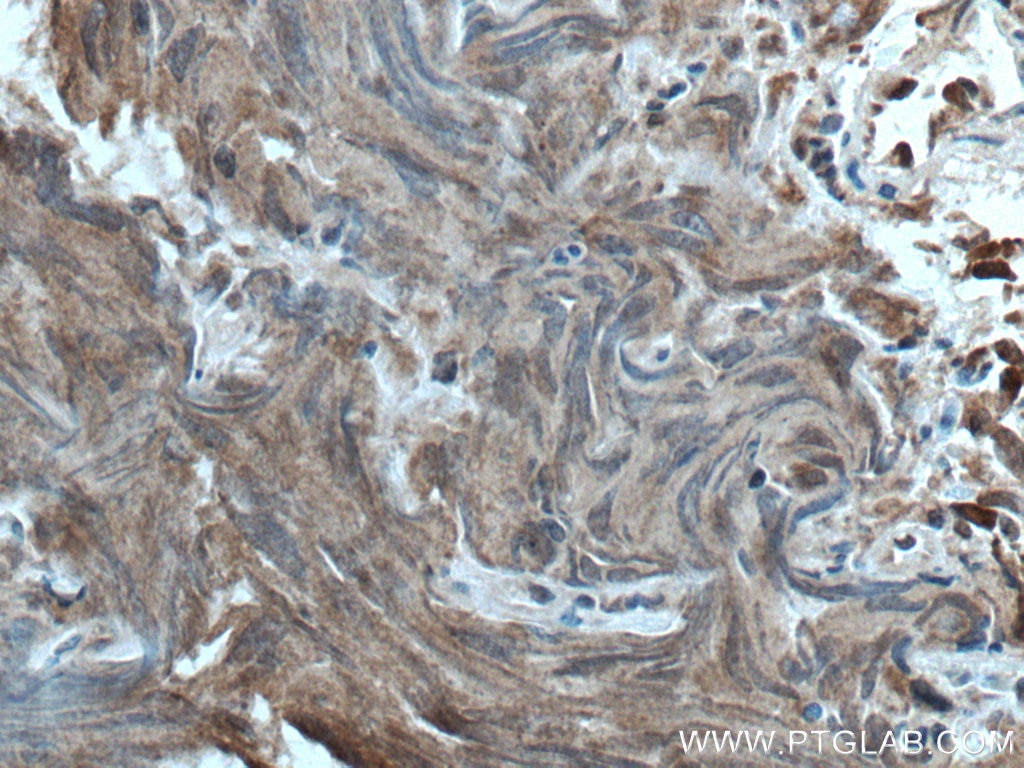Tested Applications
| Positive WB detected in | NCI-H1299 cells, A549 cells, MCF-7 cells, HEK-293 cells, PC-3 cells, LNCaP cells |
| Positive IHC detected in | human breast cancer tissue, human prostate cancer tissue Note: suggested antigen retrieval with TE buffer pH 9.0; (*) Alternatively, antigen retrieval may be performed with citrate buffer pH 6.0 |
Recommended dilution
| Application | Dilution |
|---|---|
| Western Blot (WB) | WB : 1:1000-1:4000 |
| Immunohistochemistry (IHC) | IHC : 1:50-1:500 |
| It is recommended that this reagent should be titrated in each testing system to obtain optimal results. | |
| Sample-dependent, Check data in validation data gallery. | |
Product Information
66916-1-Ig targets TFG in WB, IHC, ELISA applications and shows reactivity with Human, Pig samples.
| Tested Reactivity | Human, Pig |
| Host / Isotype | Mouse / IgG2b |
| Class | Monoclonal |
| Type | Antibody |
| Immunogen | TFG fusion protein Ag27697 Predict reactive species |
| Full Name | TRK-fused gene |
| Calculated Molecular Weight | 400 aa, 43 kDa |
| Observed Molecular Weight | 50-55 kDa |
| GenBank Accession Number | BC023599 |
| Gene Symbol | TFG |
| Gene ID (NCBI) | 10342 |
| RRID | AB_2882243 |
| Conjugate | Unconjugated |
| Form | Liquid |
| Purification Method | Protein A purification |
| UNIPROT ID | Q92734 |
| Storage Buffer | PBS with 0.02% sodium azide and 50% glycerol, pH 7.3. |
| Storage Conditions | Store at -20°C. Stable for one year after shipment. Aliquoting is unnecessary for -20oC storage. 20ul sizes contain 0.1% BSA. |
Background Information
Protein TFG (TRK-fused gene protein) plays a role in regulating phosphotyrosine-specific phosphatase-1 activity. Mutations in TFG may have important clinical relevance for current therapeutic strategies to treat metastatic melanoma. Defects in TFG are a cause of thyroid papillary carcinoma (TPC), a common tumor of the thyroid that typically arises as an irregular, solid or cystic mass from otherwise normal thyroid tissue. Hereditary motor and sensory neuropathy with proximal dominant involvement (HMSN-P) is an autosomal-dominant neurodegenerative disorder characterized by widespread fasciculations, proximal-predominant muscle weakness, and atrophy followed by distal sensory involvement. Recent genetic investigation indicates that formation of TFG-containing cytoplasmic inclusions and concomitant mislocalization of TAR DNA-binding protein 43 kDa (TDP-43) underlie motor neuron degeneration in HMSN-P. Pathological overlap of proteinopathies involving TFG and TDP-43 highlights a new pathway leading to motor neuron degeneration.
Protocols
| Product Specific Protocols | |
|---|---|
| WB protocol for TFG antibody 66916-1-Ig | Download protocol |
| IHC protocol for TFG antibody 66916-1-Ig | Download protocol |
| Standard Protocols | |
|---|---|
| Click here to view our Standard Protocols |
